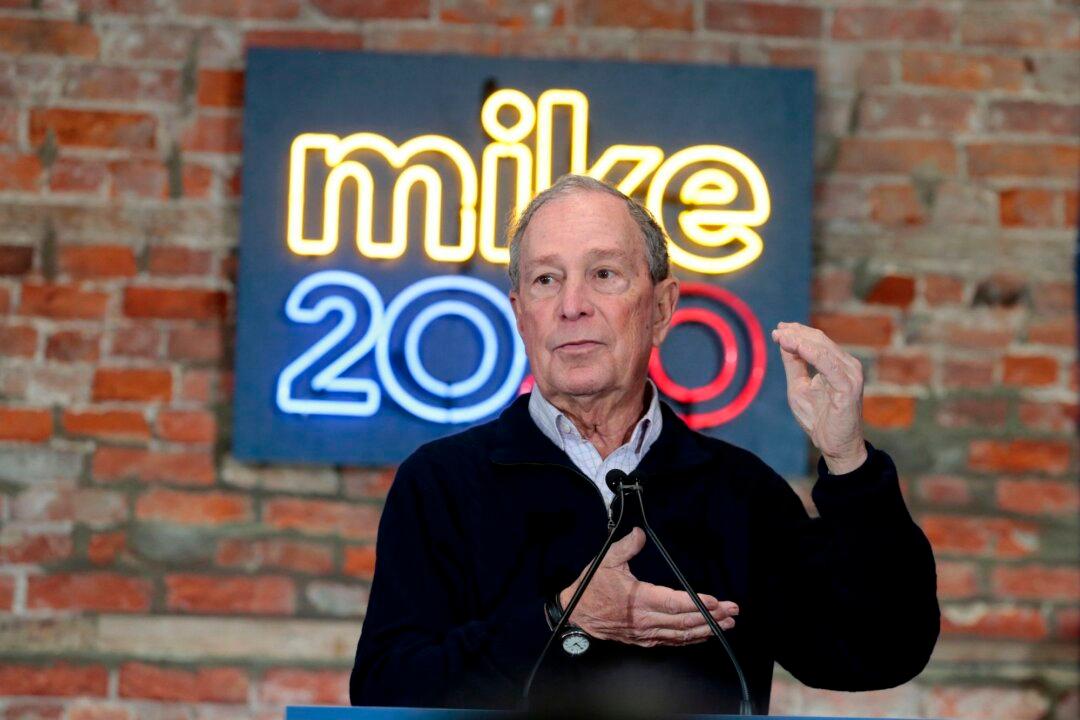Former New York City Mayor and presidential candidate Michael Bloomberg pledged Wednesday during a campaign event in Chicago to make “major investments” in community colleges to prepare students to meet the labor demands of new industries.
Bloomberg rolled out the first part of his “All-In Economy” agenda on Wednesday. The plan includes a wide range of proposals that centers around stimulating job growth and increasing wages.





